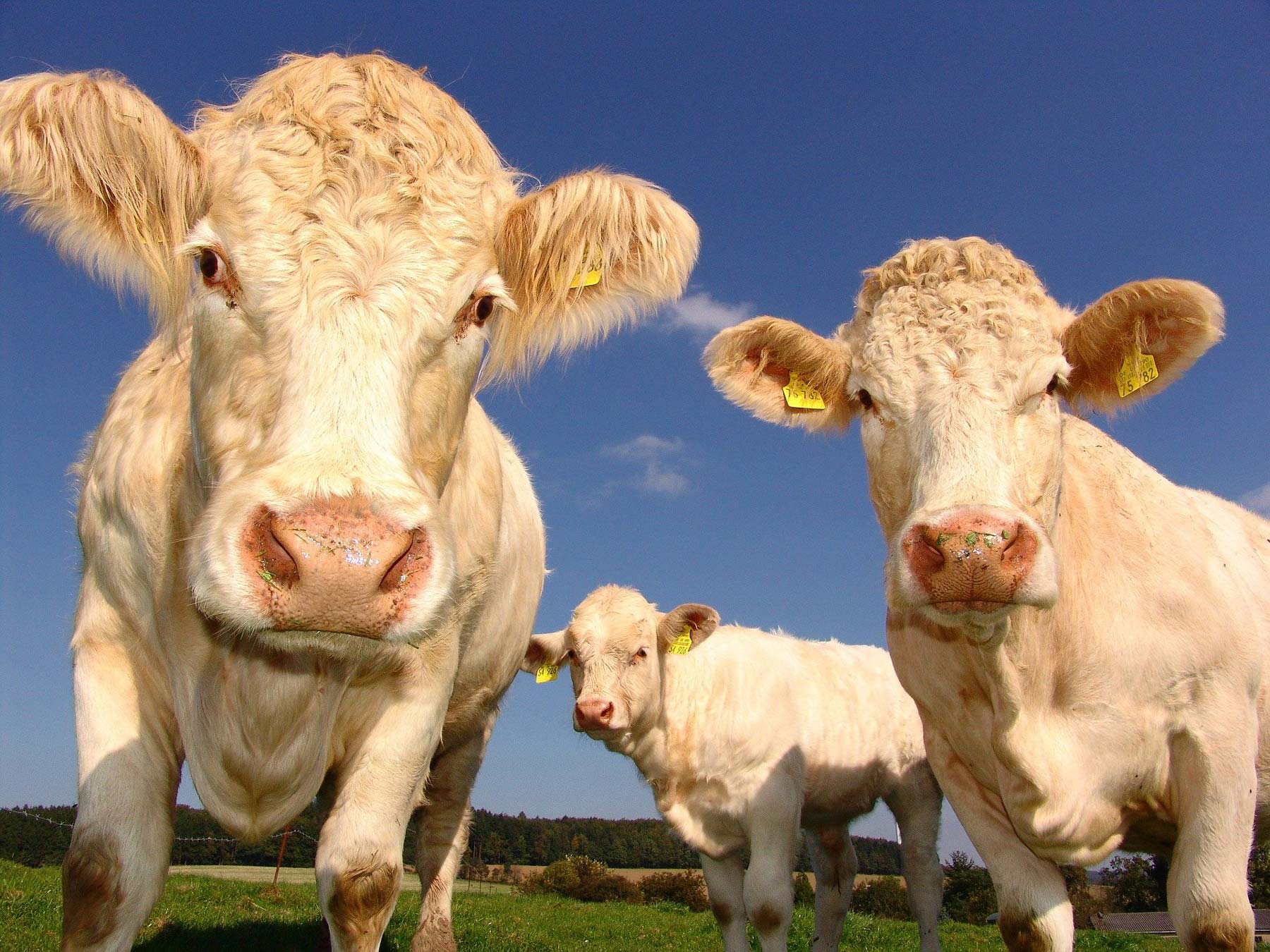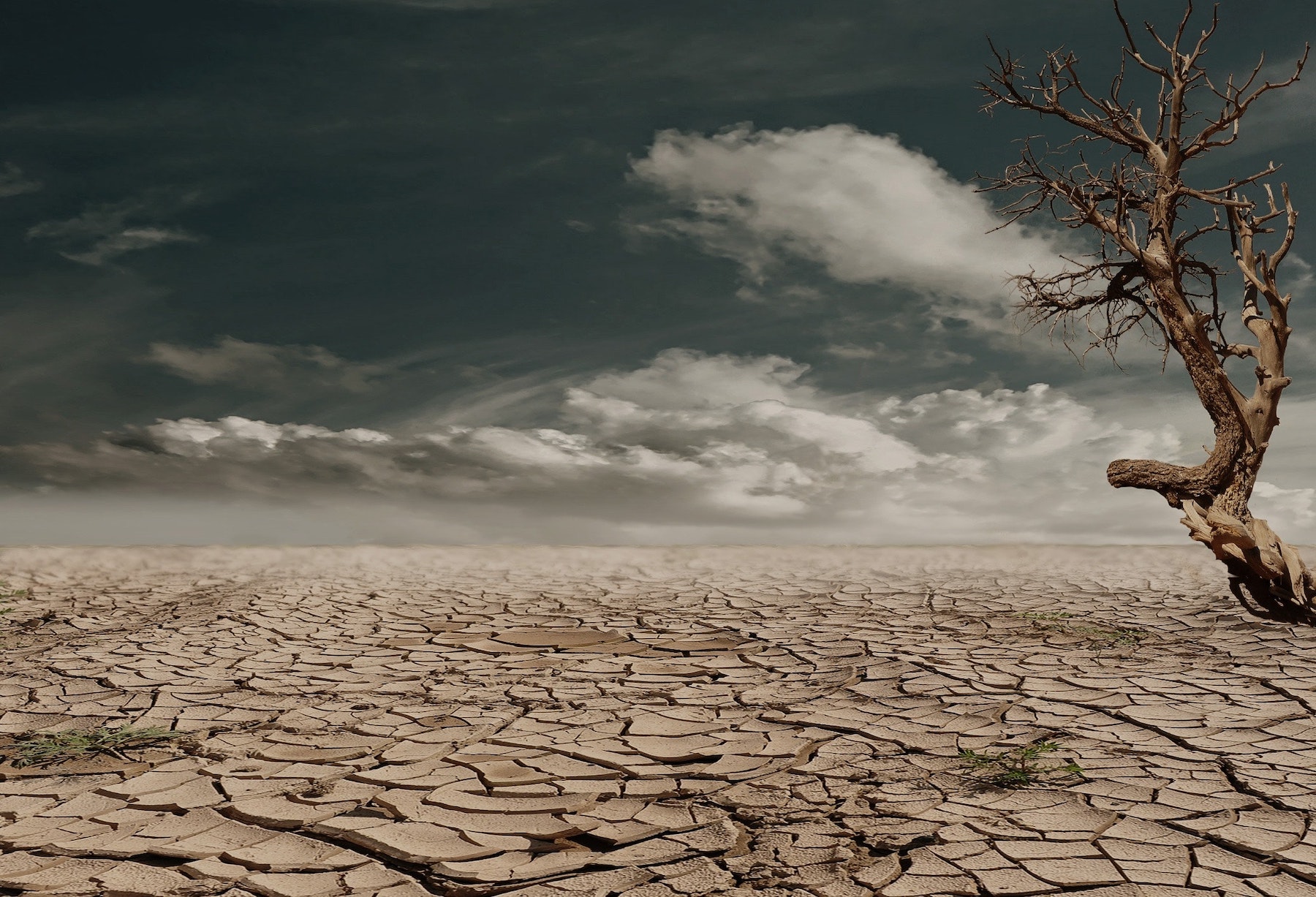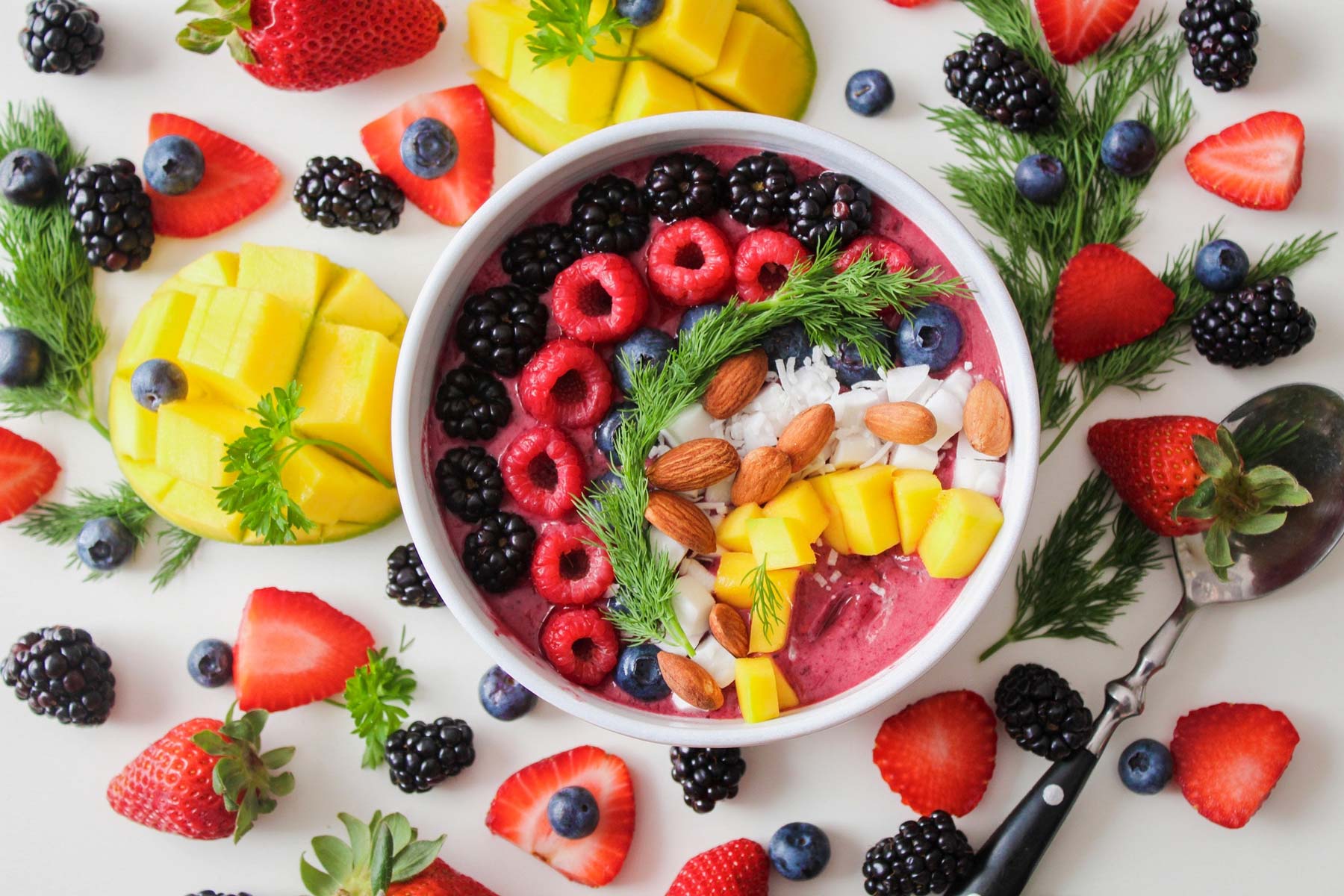Estimated reading time: 9 minutes
Choosing one food over another may seem like a little thing but the impact of that choice ripples far out into the world. If we buy meat, our dollar could be supporting factory farming, environmental destruction, and climate breakdown, while also raising the risk of us suffering a chronic disease, or the world experiencing another pandemic. We might not think about all this as we look over the menu, but if we did, would our choices change?
What Is Considered To Be Meat?
Any body part of any animal can be described as meat, and this includes the flesh, organs and any of the ground-up bits. It also includes fish, as fish are animals, too. In old English, however, ‘meat’ meant any type of food, and plant-based companies are now seeking to reclaim the word, and apply it once again more widely. In this article, however, we’ll use it to describe only the flesh and processed bits of animals.
Red Meat
This is the meat from mammals: cows, sheep, pigs, horses, goats and deer, for example.
White Meat
This is the meat from birds – chickens, ducks, turkeys and geese, for example – although the meat of fish is often said to be ‘white’ meat too.
Processed Meat
This is any meat that has been salted, cured, fermented, smoked or otherwise processed to enhance the flavor or improve preservation. This includes bacon, hot dogs, sausages, beef jerky, salami, pastrami, canned meats and meat-based preparations and sauces.
Nutrients In Meat
Meat contains protein and fat, and red meat contains iron, zinc and B vitamins. But we don’t need to get these nutrients from meat, as all of them can be obtained on a fully plant-based diet.
Why Is Meat Bad For You?
Research is consistently showing links between meat consumption and serious disease and illness. The advice is: the less we eat the better, and not eating meat at all is linked to a raft of health benefits, including living longer.

Meat And Cancer
The World Health Organization states categorically that all processed meat causes cancer and that all red meat is “probably carcinogenic”. When we cook any meat including white meat at high temperatures, such as when we grill, fry or roast it, chemicals known as heterocyclic amines form, and these are also linked to an increased cancer risk.
On the other side of the coin, eating plant-based foods has been shown to be cancer-protective. Research shows that those who eat a healthy vegan diet have “a marked reduction in mortality and age-adjusted incidence of many cancers common in Western society. These cancers include breast, prostate, colon, pancreas, ovary, and uterine endometrium cancers.”
Meat And Heart Disease
Nothing kills more Americans than heart disease and stroke, with 868,000 Americans losing their lives to these conditions every year. We know what we need to do to give our hearts the best chance to keep beating, and eating a whole food plant-based diet is a significant part of the answer.
Fruits and vegetables are our heart’s heroes, and the more we eat the better. Research shows that eating five servings of vegetables a day lowers the risk of heart disease and stroke a little, but if we eat ten servings, we can reduce the risk of cardiovascular disease by 28 percent, and premature death by 31 percent. That’s quite an incentive!
Meat And Type 2 Diabetes
More than 34 million Americans have diabetes with around 95 percent of those being type 2 diabetes, which is considered a disease of lifestyle. It’s incredibly serious, but type 2 diabetes can be prevented, halted and even reversed. Researchers concluded that eating one 3.5-ounce serving per day of red meat, such as beef or pork, increases a person’s risk of developing type 2 diabetes by 19 percent. And eating an even smaller serving of processed meat (including bacon, hot dogs, and jerky) increases the risk by 51 percent.
While this is worrying, we can slash the risk with simple lifestyle changes. Eating a plant-based diet can control blood sugar three times more effectively than the recommended diabetes diet, and participants in one study saw dramatic improvements within weeks when they ate plant-based.
Foodborne Illness
It’s not just chronic disease that meat is associated with, it can also cause immediate and sometimes deadly food poisoning incidents caused by a host of pathogens, including: E. coli, salmonella, shigella, staphylococcus, listeria, campylobacter, vibrio gastroenteritis, and norovirus. And every now and then, along comes a disease in meat that shocks the world: we’re thinking of BSE in cows, and deadly viruses like bird flu and swine flu that emerge in animals and transmit to people.
Most Meat Has Hormones In It
Animals (and plants) naturally produce hormones and we consume these when we consume them. But many animals in the United States are also given significant quantities of synthetic hormones to artificially boost their growth. Although this is banned in Europe, most farmers in America who rear cows for beef, implant hormones into the animals, and hormones are often given to sheep, too.
Resistance To Antibiotics
Antibiotic resistance happens when bacteria stop responding to the drugs that have been developed specifically to treat them. Already, 2.8 million Americans get an antibiotic-resistant infection and more than 35,000 people die each year, but it doesn’t have to be this way.
The trouble is, the more we use antibiotics, the more the bacteria get used to them and find ways to beat them. In giving vast quantities to farmed animals, we have been incredibly careless, even reckless. Why would we do that? One, because the disgusting conditions we keep those animals in allow disease to run rife, and antibiotics are often all that keeps those poor creatures alive long enough to reach slaughter weight. And two, there is a lucrative side-effect to these drugs – they make animals grow faster.
Might Contribute To Erectile Dysfunction
Erectile dysfunction is caused by the narrowing of arteries, which is the very same thing that causes cardiovascular disease and stroke. It should be obvious then that a diet that is bad for our heart health is also going to have an impact elsewhere. Says Dr Neal Barnard of the Physicians Committee for Responsible Medicine: “When it comes to erectile dysfunction, it’s not you, it’s meat.”
Increases Your Risk Of Death
While the link between cancer and meat is well known, researchers at Oxford University also studied the role of meat in 25 non-cancerous illnesses. They found that eating meat raised the risk of suffering nine of them, including heart disease, pneumonia and diabetes. Eating red or processed meat is also associated with increased risk of mortality.
Yet, while meat is associated with a range of diseases, research shows that healthy plant-based diets are associated with lower risk of all-cause mortality. Choose plants every time!
Why Is Eating Meat Bad For The Environment?
There must be a dozen serious ways in which the meat industry does harm to our planet. Here are just a few.

Deforestation
Agriculture is the leading driver of deforestation, and the farming of cows for beef is the number one cause of deforestation in virtually every Amazon country. At the heart of the problem is that meat is fundamentally unsustainable. Raising animals needs a lot more land and produces a lot fewer calories than when we grow plants for human consumption. Being land-hungry, it drives deforestation as well as the destruction of many other important natural habitats and ecosystems. And when we lose forests, we lose wildlife, as well as displacing indigenous communities.
Climate Change
Human activity is responsible for around 100 percent of the warming observed since 1950. And one of the biggest causes is animal agriculture, which is driven by the consumption of meat. Animal farming contributes 16.5 percent of all human-generated greenhouse gas emissions, which is more than all the emissions produced by every car, bus, train, plane, truck and ship combined. Not only does animal farming produce a huge amount of carbon, but it is also one of the largest emitters of methane, which has a warming potential more than 80 times that of CO2. Scientists warn that we will not prevent climate catastrophe unless we act to massively reduce carbon and methane emissions – and that means we must change what we eat.
Climate change is one reason University of Oxford researchers concluded that being vegan is the “single biggest way” we can protect the planet.
Excessive Use Of Water
Globally, animal agriculture uses between 20 and 30 percent of all freshwater while in the United States, farmed animals consume one-half of all water used.
Water is a scarce but vital resource. Only three percent of the world’s water is fresh, and two-thirds of that is locked away in glaciers or is otherwise unavailable for use. And yet, we waste so much of it by giving it to farmed animals. An average-sized North American pig farm with 80,000 pigs uses nearly 75m gallons of fresh water a year. A large one, which might have one million or more pigs, may need as much as a city. As water shortages become more widespread and serious, and people are increasingly becoming affected by lack of water, can we really afford to waste this precious resource?
Overuse Of Land
Globally, animal agriculture uses 83 percent of all farmland but gives us just 18 percent of our calories. What a waste! If we ate plants instead, we could provide nutritious food for everyone using a lot less land. We could return vast amounts to nature and try to reverse the catastrophic decline in wildlife populations and wild habitats.
Are Plant-based Meat Alternatives A Healthy Option?
They can be but it depends on the choices we make. When we prioritize whole foods – fruits, legumes, vegetables, nuts, seeds, salads, herbs and other natural foods – we are doing our body a world of good. Eating plant-based meats can fit into our healthy eating routines by adding protein and other nutrients. And when we consider plant-based diets versus meat-based, the proof of the pudding is in the eating. Vegans suffer less from heart disease, and type 2 diabetes and have a better chance at living longer, too. So yes, plant-based meats are a great choice.

What Is A Good Balanced Diet?
A good diet provides us with everything we need to be healthy while not contributing too much of the stuff that can cause ill health or disease. So, we want vitamins, minerals, protein, healthy fats and complex carbohydrates and we can get all of those from plants.
And when we choose plant sources over animal sources, we find many potential short-term and long-term health benefits, from better sleep, skin, hair and energy to reduced risk of heart disease, type 2 diabetes and some cancers.
Conclusion
It is really interesting that the food choices that are good for us are also good for the planet – including the wild and domesticated animals we share the world with. Choosing plant-based foods nourishes us, supports optimal health and longevity, while also keeping our planet healthy – for us, for our children and for their children.
Want to try vegan? Sign up for our 31-day vegan challenge to get plenty of support, recipes and ideas.



